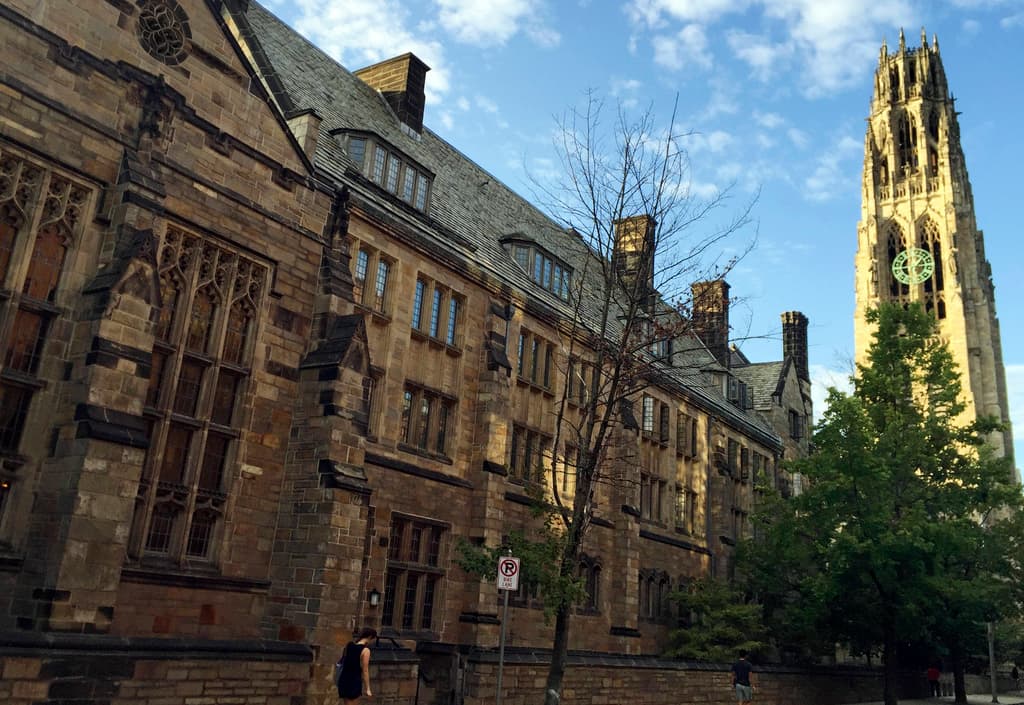Ex-Yale Student Found Not Guilty of Rape by Court After Being Suspended Over Same Accusations Presses Forward in Landmark #MeToo Lawsuit
The case, in which the ex-student is suing his accuser, is a rare example of a college judicial system’s quasi-legal ‘verdict’ being tested in criminal court.

A #MeToo era defamation case brought by a Yale University student who was expelled over rape accusations will likely be heading back to district court, reigniting a national debate about sexual assault on college campuses and how to balance support for accusers while also protecting the rights of the accused.
The case, Saifullah Khan v. Yale University, et al., is being adjudicated as the Biden administration is slated to change Title IX regulations in October covering how colleges handle sexual misconduct cases. In 2020, President Trump’s education secretary, Betsy DeVos, implemented sweeping changes to the Obama administration’s Title IX rules to bolster the rights of the accused by allowing them to cross examine their accusers, among other requirements. President Biden is promising to reverse these Trump era changes.
“Biden just wants to go back to Obama’s policies,” a Brooklyn College history professor who studies college sexual assault cases, KC Johnson, tells the Sun. “Nationally, I think we have had something of a reckoning [with #MeToo]. But on campus, there was near universal, and in elite schools, resistance to the DeVos regulations.”
The Khan defamation case stems from a 2015 rape allegation brought by another Yale student, known in proceedings only as Jane Doe. Ms. Doe accused a fellow Yale student and Afghan native, Saifullah Khan, of raping her in her dorm room after they met at a Halloween party. Mr. Khan says they engaged in consensual sex.
Mr. Khan was criminally charged with sexual assault and acquitted of all counts by a jury in 2018. Yet Yale expelled him later that year after holding its own internal sexual assault disciplinary hearing, in which Mr. Khan was unable to cross examine his accuser and Ms. Doe did not have to testify under oath.
After his expulsion, Mr. Khan sued Yale University and Jane Doe for defamation and “tortious interference with his contractual relationship with Yale.” A district court dismissed the case, saying that Ms. Doe was protected from defamation charges while testifying at Yale’s misconduct proceeding because it is a “quasi-judicial” forum. Mr. Khan appealed to the Second Circuit.
In late June, the Connecticut Supreme Court, which the Second Circuit had asked to review the case, unanimously ruled that Yale’s internal sexual assault disciplinary proceedings do not meet “quasi-judicial” standards and therefore cannot shield the rape accuser, Jane Doe, from a defamation lawsuit. At issue was the fact that the disciplinary proceeding did not give the accused the right to call witnesses and cross examine his accuser, and that the accuser was not required to testify under oath.
“The Connecticut Supreme Court held that Yale’s procedures represented a kangaroo court and were no court at all,” Mr. Khan’s attorney, Norm Pattis, tells the Sun.
The Connecticut Supreme Court’s opinion states that while the court is “sensitive to the need to encourage alleged victims of sexual assault to report their abuse to the appropriate authority at any institution of higher education,” college disciplinary hearings must have “fundamental procedural safeguards.” The court said that students reporting sexual assault deserve some immunity for their statements, but not if they are malicious.
“We must recognize a competing public policy that those accused of crimes, especially as serious a crime as sexual assault, are entitled to fundamental fairness before being labeled a sexual predator,” the Connecticut Supreme Court ruling states. “We must acknowledge that the accused’s right to fundamental fairness is no less important than the right of the accuser or the larger community to achieve justice.”
“This notion of ‘believe the woman,’ you know that is unheralded in our law. Nowhere do you believe an accuser — typically people have to prove their cases,” Mr. Pattis says. “There seems to be a growing consensus that while sexual assault is a problem on campus, so are the rights of the accused, and the balance has been struck far too much in favor of the accusers, leaving the accused with little or no protection.”
Fifteen sexual assault advocacy organizations filed a brief in support of the alleged rape victim in the case, Jane Doe, saying victims won’t be able to safely come out with accusations of sexual misconduct if they can be held liable for defamation. “Without absolute immunity for statements made during such processes, long-established laws aimed at preventing and responding to discrimination in education will be undermined,” they wrote.
Ms. Doe’s attorneys did not respond to a request for comment from the Sun. On Friday, Mr. Khan asked the Second Circuit to return the case back to the district court to be decided on the merits.
“The Connecticut Supreme Court noted that the pleadings reflect more than sufficient evidence of potential malice in the form of over-heated ‘MeToo’ sensibility that, for a time, overcame more sober application of due process and fundamental fairness customarily afforded both accessors and the accused,” Mr. Khan’s brief states.
Ms. Doe also filed a brief Tuesday calling for the case to be returned to district court, arguing, among other points, that “discovery may establish sufficient ‘procedural safeguards to be considered quasi-judicial.’”
Yale University did not file a brief this week or in the motion to dismiss, and has not released any public statements on the case. Mr. Johnson says that Yale is going to have a difficult time disputing that it was under pressure to expel Mr. Khan after 77,000 persons signed a petition in 2018 calling for the university not to readmit him, despite Mr. Khan being acquitted of all charges in a criminal court.
“Yale’s silence here is just extraordinary,” Mr. Johnson says. “You have your own state supreme court essentially saying that you’re using kangaroo courts, and the university has basically put its hands over its ears and said nothing.”
Mr. Johnson also says that the Biden administration made a “deliberate political choice” to release its proposed Title IX rule change regarding college sexual assault cases at the same time it changed its rule regarding transgender competition in school athletics. “The trans issue will get all the attention, and they kind of sneak through the sexual misconduct regulations without getting a lot of public heat,” he says.
Mr. Pattis says “this case isn’t about Trump” or his Title IX rule change, it’s about creating a “level playing field” in college sexual assault proceedings. He has harsher words for #MeToo.
“#MeToo injected a toxic element into judicial and quasi-judicial proceedings,” Mr. Pattis says, “and I hope that this is a reckoning for it. And I hope it puts a stake through its heart.”

